Creating awareness involves using the direct communication and powerful questioning competencies. At a beginning level of competency, it means generating awareness of new techniques or …
Evaluating CC8 Creating Awareness
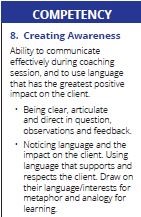
Center for Coaching Certification

Creating awareness involves using the direct communication and powerful questioning competencies. At a beginning level of competency, it means generating awareness of new techniques or …
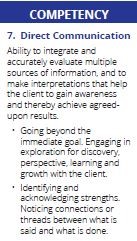
Direct communication requires accurately evaluating and interpreting multiple sources of information. For example, an awareness of the client’s intended meaning, learning style, and personality is …
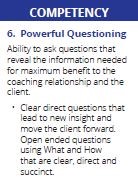
Powerful questioning is a skill developed over time. It begins with questions that are short, simple, and open-ended. Most often the questions start with the …
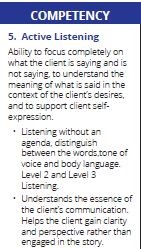
Active listening is focusing completely on both what a client is saying and is not saying within the context of who they are to gain …
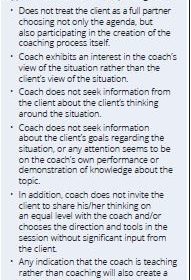
Because the number one indicator of success in a coaching relationship is the rapport between the coach and the client, this coaching competency of establishing …
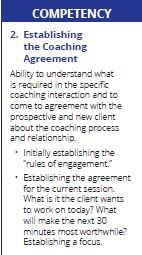
Establishing the coaching agreement includes both an initial agreement for the coaching relationship and an agreement at the beginning of each session as to what …
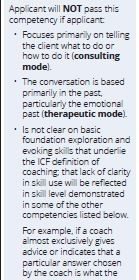
In the ICF Comparison Table, the only competency that is not directly evaluated during an oral exam for credentialing is Ethics and Standards. At the …
The ICF published a comparison table on their website that provides excellent awareness of the coaching competencies from the perspective of skill development. Specifically, it …

It makes sense that coach training includes coaching. More than that, it makes sense that it includes coaching, being coached, and observing coaching. Ultimately, learning …

Training as a lawyer does not prepare someone to work as a teacher. Training as a lawyer may be helpful if the person is going …